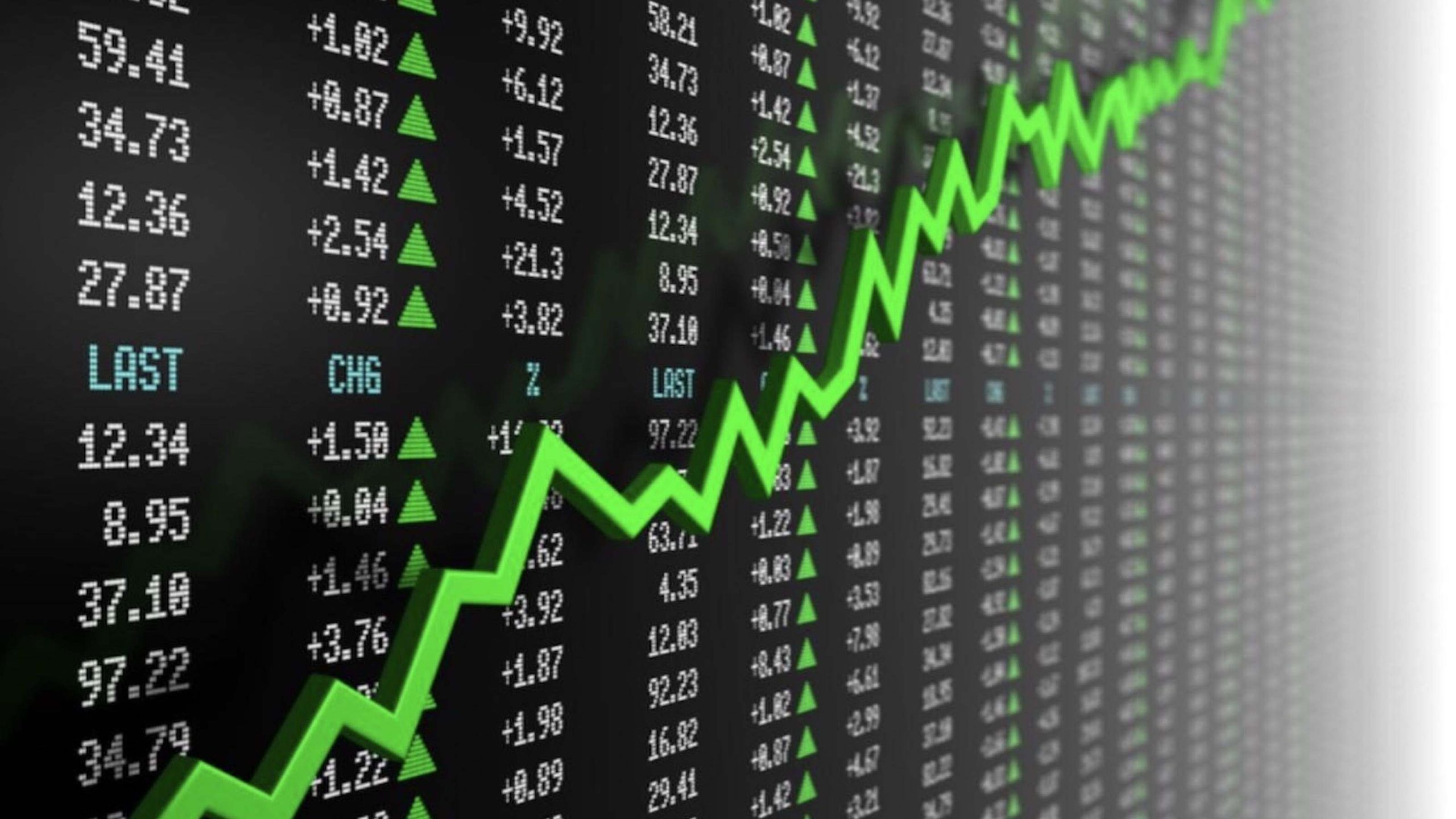Global Stock Market Capitalization Poised to Hit Three-Year High
30.09.2024 21:00 1 min. read Kosta Gushterov
Global stock market capitalization is on track to reach its highest level in three years, driven by recent interest rate cuts from the Federal Reserve and economic stimulus measures from China.
According to Bank of America, global stock market capitalization is expected to exceed the record $123 trillion set in October 2021, based on data from GFD Finaeon.
The Vanguard Total World Stock ETF, which tracks both U.S. and international stocks, has already surpassed its previous peak, achieving a new all-time high.
Bank of America strategists, led by Michael Hartnett, noted that market anxiety tends to decrease when policymakers take decisive actions. This week, China announced monetary stimulus measures alongside the Fed’s half-percentage-point rate cut, contributing to a rebound in confidence.
The Hang Seng index experienced a remarkable 13% surge this week, marking its best performance since 1998. The strategists indicated that the Fed’s decision to cut rates without a looming recession is favorable for riskier assets. Investors believe that the recent policy shifts from the Fed and China could mitigate recession risks.
To capitalize on the situation in China, the strategists recommend focusing on industrial metals, materials, and international stocks, particularly if the stimulus efforts support a stable yield for China’s 10-year bonds, which yielded around 2.17% on Friday.
-
1
Strategy (MSTR) Strengthens Bitcoin Treasury Strategy Amid Record Quarterly Gains
07.10.2025 18:03 7 min. read -
2
Stablecoins vs. Credit Cards: How Digital Payments Stack Up
24.09.2025 12:00 3 min. read -
3
S&P Launches Digital Markets 50 Index to Track Crypto and Blockchain Stocks
07.10.2025 16:41 2 min. read -
4
EU Risk Watchdog Urges Stronger Safeguards on Cross-Border Stablecoins
02.10.2025 22:00 1 min. read -
5
Morgan Stanley Wealth Management Releases Report on Crypto’s Role in Investment Portfolios
06.10.2025 10:00 2 min. read
FTX Bankruptcy Faces Scrutiny Over Dollar-Based Repayments
Sam Bankman-Fried claims the Biden administration targeted him for political reasons, while creditors raise concerns about how FTX’s bankruptcy handled digital asset repayments.
Nasdaq Listing Marks Milestone for OwlTing’s Stablecoin Ambitions
Taiwanese blockchain firm OwlTing will begin trading on the Nasdaq Global Market on October 16 under the ticker OWLS, marking a milestone as one of the first Asian stablecoin infrastructure companies to list directly on a major U.S. exchange.
Can Bitcoin Outlast Stocks in the Age of Artificial Intelligence?
Trying to guess what the world of finance will look like in 50 years is almost impossible.
Strategy: Is it Undervalued or Overextended After Its Latest Bitcoin Buy?
The resurgence of crypto-linked equities has reignited investor curiosity across traditional markets, as Bitcoin’s volatility continues to ripple through related sectors.
-
1
Strategy (MSTR) Strengthens Bitcoin Treasury Strategy Amid Record Quarterly Gains
07.10.2025 18:03 7 min. read -
2
Stablecoins vs. Credit Cards: How Digital Payments Stack Up
24.09.2025 12:00 3 min. read -
3
S&P Launches Digital Markets 50 Index to Track Crypto and Blockchain Stocks
07.10.2025 16:41 2 min. read -
4
EU Risk Watchdog Urges Stronger Safeguards on Cross-Border Stablecoins
02.10.2025 22:00 1 min. read -
5
Morgan Stanley Wealth Management Releases Report on Crypto’s Role in Investment Portfolios
06.10.2025 10:00 2 min. read
JPMorgan Chase CEO Jamie Dimon recently raised concerns about the U.S. economy, citing the potential impact of inflation and increasing deficits.
JPMorgan analysts have identified a lasting shift in investor behavior, highlighting the growing reliance on gold and Bitcoin as hedges against the declining value of fiat currencies.
Gold, traditionally viewed as a store of value, is approaching the $3,000 mark, currently trading above $2,700 and reaching new all-time highs.
In a surprising long-term performance shift, gold has officially outpaced the U.S. stock market over the past 25 years—dividends included.
The price of gold again reached an all-time high, exceeding $2,736 per ounce, after rising around 38% this year.
Goldman Sachs has raised its long-term outlook on gold, projecting that the metal could approach $3,880 per ounce by late 2025 if recession fears take hold.
Gold's demand has surged, driven by investor FOMO, with global interest exceeding $100 billion in the third quarter—setting a historic record.
In July, global gold exchange-traded funds (ETFs) saw their largest inflows since April 2022, according to a report by Ernest Hoffman for Kitco News.
Gold funds are back in the spotlight, pulling ahead of Bitcoin ETFs in cumulative inflows after a summer rally reshaped the leaderboard.
Mounting geopolitical uncertainty is breathing new life into gold’s rally, with top financial institutions now predicting a surge toward $4,000 per ounce.
Gold’s relentless climb in 2025 shows no sign of slowing. Spot prices burst above $3,400 this week—within striking distance of April’s record near $3,500—after renewed hostilities in the Middle East rattled global markets.
The ongoing battle between gold and Bitcoin, often referred to as "digital gold," has recently seen gold pull ahead in performance.
Recent data reveals that Bitcoin and gold have moved in opposite directions recently.
Gold has officially entered uncharted territory, with its price per ounce breaking above $4,000 for the first time in history, signaling powerful bullish momentum across global markets.
Gold prices are hitting new records, recently topping $2,510, while Bitcoin, often compared to gold, has struggled, remaining roughly 15% below its March highs.
Gold’s upward trajectory has caught the attention of Bloomberg’s Mike McGlone, who sees the potential for the metal to reach unprecedented highs.
Gold has seen an impressive surge in 2024, continuing its upward trajectory with strong quarterly gains that analysts expect to persist into the next year.
Market participants are closely monitoring upcoming economic indicators from the United States, along with insights from Federal Reserve officials, which could significantly impact gold prices.
Three of the largest U.S. banks are optimistic about gold's continued upward momentum, with some projecting substantial gains for the precious metal.
Gold may be running out of steam after its recent climb past $3,000, with technical indicators flashing signs of exhaustion.


